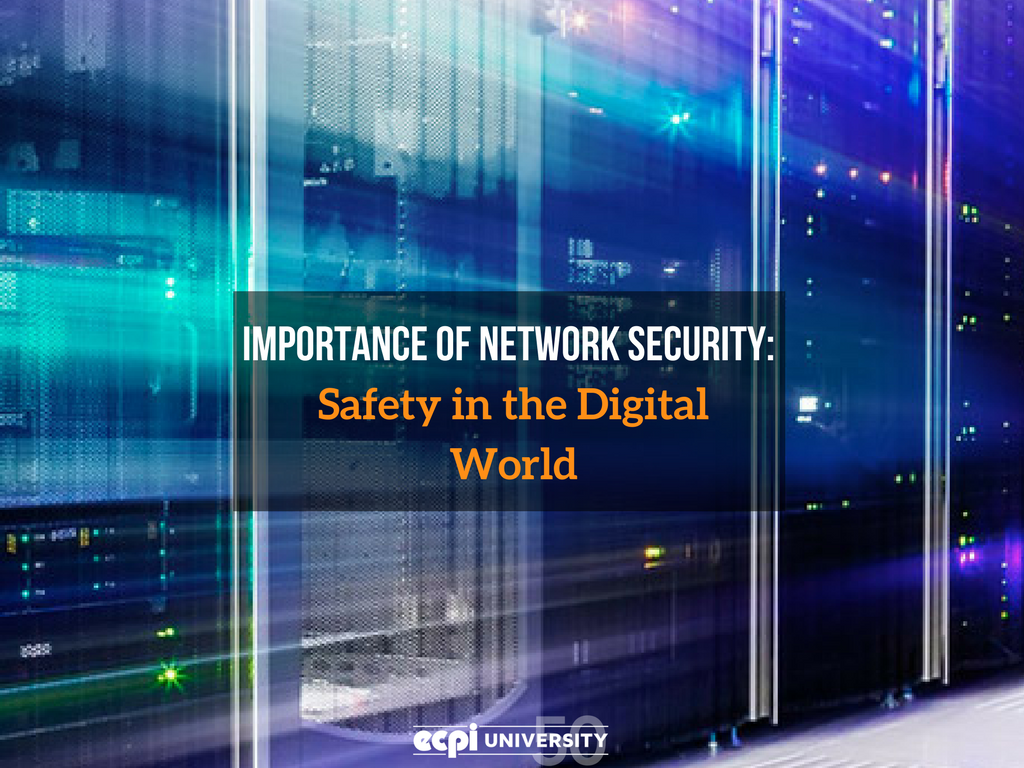
With the increasing reliance on technology, it is becoming more and more essential to secure every aspect of online information and data. As the internet grows and computer networks become bigger, data integrity has become one of the most important aspects for organizations to consider. Let’s take a look at why network security is so important in today’s digital age.
Why is network security important?
Network security is one of the most important aspects to consider when working over the internet, LAN or other method, no matter how small or big your business is. While there is no network that is immune to attacks, a stable and efficient network security system is essential to protecting client data. A good network security system helps business reduce the risk of falling victim of data theft and sabotage.
Network security helps protect your workstations from harmful spyware. It also ensures that shared data is kept secure. Network security infrastructure provides several levels of protection to prevent MiM attacks by breaking down information into numerous parts, encrypting these parts and transmitting them through independent paths, thus preventing cases like eavesdropping.
Getting connected to the internet means that you could receive lots of traffic. Huge traffic can cause stability problems and may lead to vulnerabilities in the system. Network security promotes reliability of your network by preventing lagging and downtimes through continuous monitoring of any suspicious transaction that can sabotage the system.
How can things go wrong in networks that will impact individuals and companies?
Having your network hacked can put you out of business. Vandalism can occur. This typically involves the planting of misleading information into the system. It is one of the many tactics that hackers use. By planting the wrong information, your company’s integrity can be called into question and customers may feel misled.
Damaging of intellectual property is also one of the impacts of faulty network security systems. Hacking gives unauthorized access to company’s or individual’s information. For instance, the Citibank Security Breach which affected roughly 1% of its customers in the US. If a hacker gets in and steals plans, ideas, or blue prints, the company may not be able to implement new designs and products. This might destroy the business or keep it stagnating.
The company could also experience revenue loss. Most attacks launched on a network can lead to crashing. Extended downtime of a network can lead to revenue loss, as the company may have to cease all transactions. The longer the network is down, the more revenue is lost. Aside from the tangible loss in revenue, the company's reputation may suffer from a loss of credibility.
How can Education and Training in Cyber Security help Individuals Keep Networks Running Safely?
If you want to help protect networks from hackers and outthink the people who consider compromising businesses their hobby, you’re going to need the right training to do so. A well-rounded education in cyber and network security could expose you to many common methods hackers use to gain access to networks, give you the hands-on training you need to think beyond simple security methods, and prevent even a highly-technical, well organized cyber criminal from getting in. Here are some of the skills and training you should look for in any cyber security program:
- Administer, troubleshoot and manage hardware, software, or services for single, multi and mixed-user environments.
- Evaluate problems and monitor networks to make sure it is available to the users; identify the customer needs and use this information to interpret, design and assess the network requirements.
- Plan, implement and coordinate network security measures, install security software and monitor networks for security breaches.
- The training prepares you on how to use cyber security measures to manage personnel conducts and protects data in relation to safeguarding the information.
- Learn how to perform vulnerability analysis and penetration testing of organizations. Furthermore, you will gain sufficient knowledge on how to monitor and defend networks by creating basic security procedures and policies.
Are you interested in the digital world of cyber and network security? If you want to earn a Bachelor of Science Degree in Computer and Information Science with a Major in Cyber and Network Security, ECPI University offers the program you need at an accelerated schedule. To start the conversation about your future, connect with a friendly admissions advisor today.
It could be the Best Decision You Ever Make!
DISCLAIMER – ECPI University makes no claim, warranty, or guarantee as to actual employability or earning potential to current, past or future students or graduates of any educational program we offer. The ECPI University website is published for informational purposes only. Every effort is made to ensure the accuracy of information contained on the ECPI.edu domain; however, no warranty of accuracy is made. No contractual rights, either expressed or implied, are created by its content.
For more information about ECPI University or any of our programs click here: http://www.ecpi.edu/ or http://ow.ly/Ca1ya.




